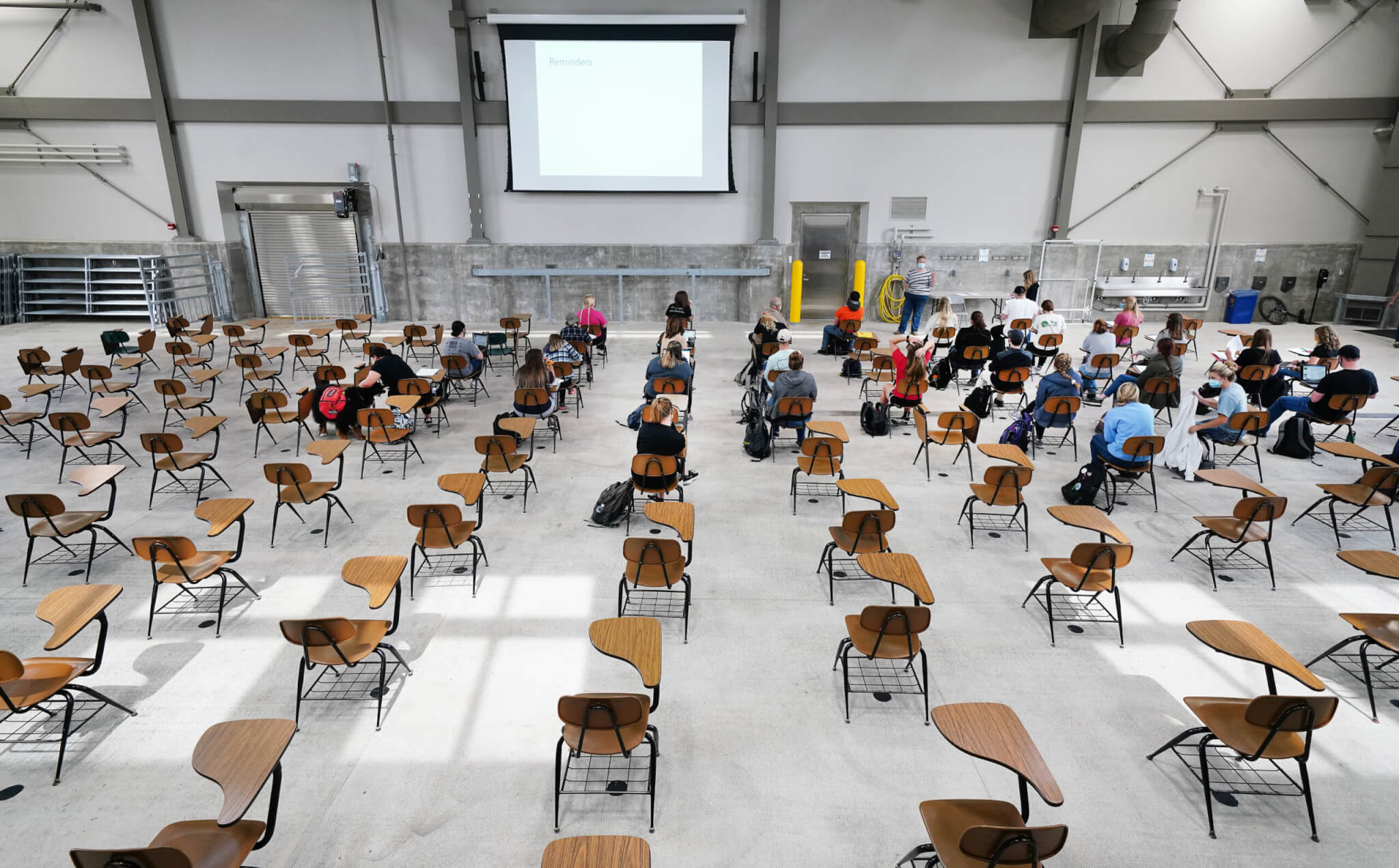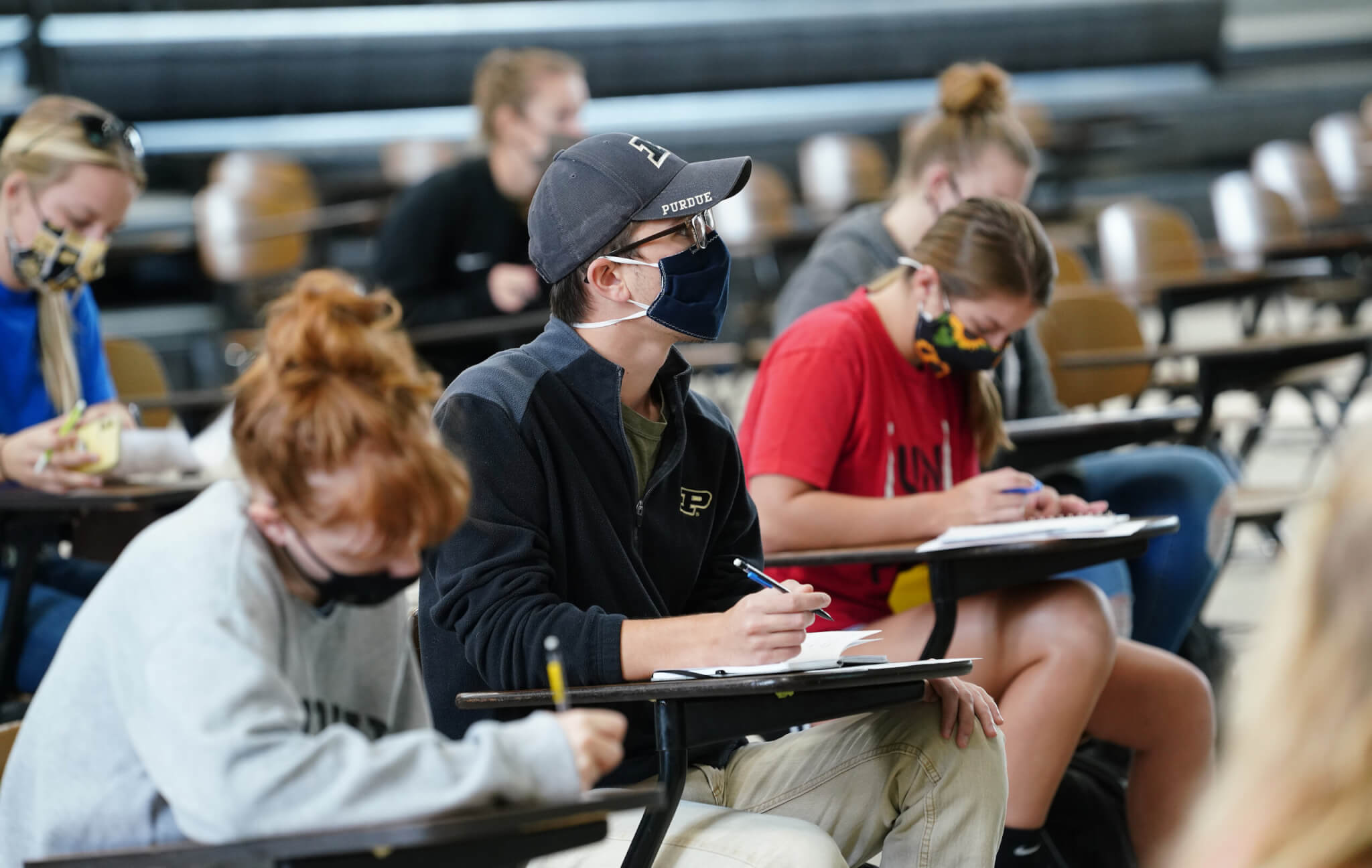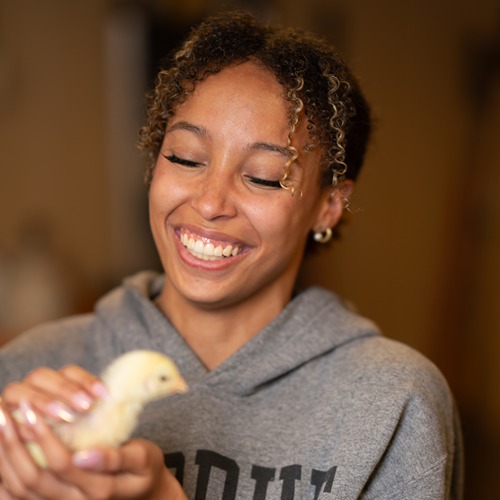College of Agriculture’s freshman class reveals its resilience
“This semester is definitely something I’m going to always remember,” Makinzi France said. “Growing up our grandparents talked about these historic landmarks. This pandemic and semester has been a landmark for us. This is the kind of thing you tell your grandchildren about.”
France, an agricultural economics student, joined hundreds of college freshmen who began their undergraduate career under the specter of COVID-19. Like most high school seniors around the country, France didn’t experience a normal graduation and arrived on campus with safety restrictions and hybrid teaching models intended to limit the spread of COVID-19.
Yet, in spite of these unprecedented times and limitations, France and others in her class say they are thrilled to be on campus and are finding new ways to socialize and study.
Bethany Madore, a botany and plant pathology freshman, said she felt nervous about coming to campus, even though Purdue and the College of Agriculture took great pains to share resources and communicate what to expect.
“Freshman year is nerve-racking enough. Coming in during a pandemic just amplified that,” Madore said. “But faculty and staff are constantly reaching out to let us know we’re not alone, so I’m feeling more comfortable and safe every day.”
Like many of her peers, Madore attends about 50 percent of her classes in person and the remainder online. Due to social distancing, this means most of her face to face interaction happens in class, as opposed to during social gatherings, mealtimes or in dormitories.
“I’m really getting to know and interact with people in my classes,” Madore continued. “I don’t know if that would be the case under normal circumstances. The sections are smaller than they otherwise would be, and you’re really able to have conversations with each other and the professors.”
Noah Berning, who is majoring in agricultural and biological engineering, agreed social interaction orbits primarily around academics, even though he belongs to a fraternity.
“From the fraternity standpoint, I’m spending a lot of time studying with my brothers,” Berning said. “I’m also meeting up with people from class, in-person and online, to work on assignments. We interact a lot more outside the classroom than might have otherwise been the case.”
Emily Wendel, a horticulture and landscape architecture freshman, said her adjustment period to the hybrid model was extreme.
Wendel has dyslexia, so finding materials through the online portals and getting a sense for how professors organize course materials has been a challenge. Like anything, however, Wendel said you adjust and find ways around roadblocks.
“I do find in-person classes better because it’s just easier for me to access the information that way,” Wendel added. “I knew online was going to be hard, and it is, but I’m figuring it out. Teachers are finding ways to facilitate interaction. One assignment for an in-person class I had was to walk around with a partner, look at plants and get to know each other.”
Smith said the hybrid learning style has been an adjustment for him as well, finding concentrating in a dorm more difficult than a classroom. But he’s making the learning style work for him and taking advantage of the benefits its offers.
“My preference is to be in person and get that connection,” Smith continued. “But, with my online classes, I’m finding it can also be nice to learn asynchronously. I’m more in charge of my academic time and can distribute it however I want. If I want to watch a lecture at midnight, I can.”
All of the freshman said while they are looking forward to a return to normalcy, from attending sporting events to club meetings, they feel grateful and excited to be on campus, finding structure and meaning in a turbulent time.
“This class was born in the aftermath of 9/11 and we graduated in 2020,” Wendel said. “We are resilient and we have stories to tell. At least now when I have kids and they go off to college I can tell them, comparatively, they’re going to be just fine.”








